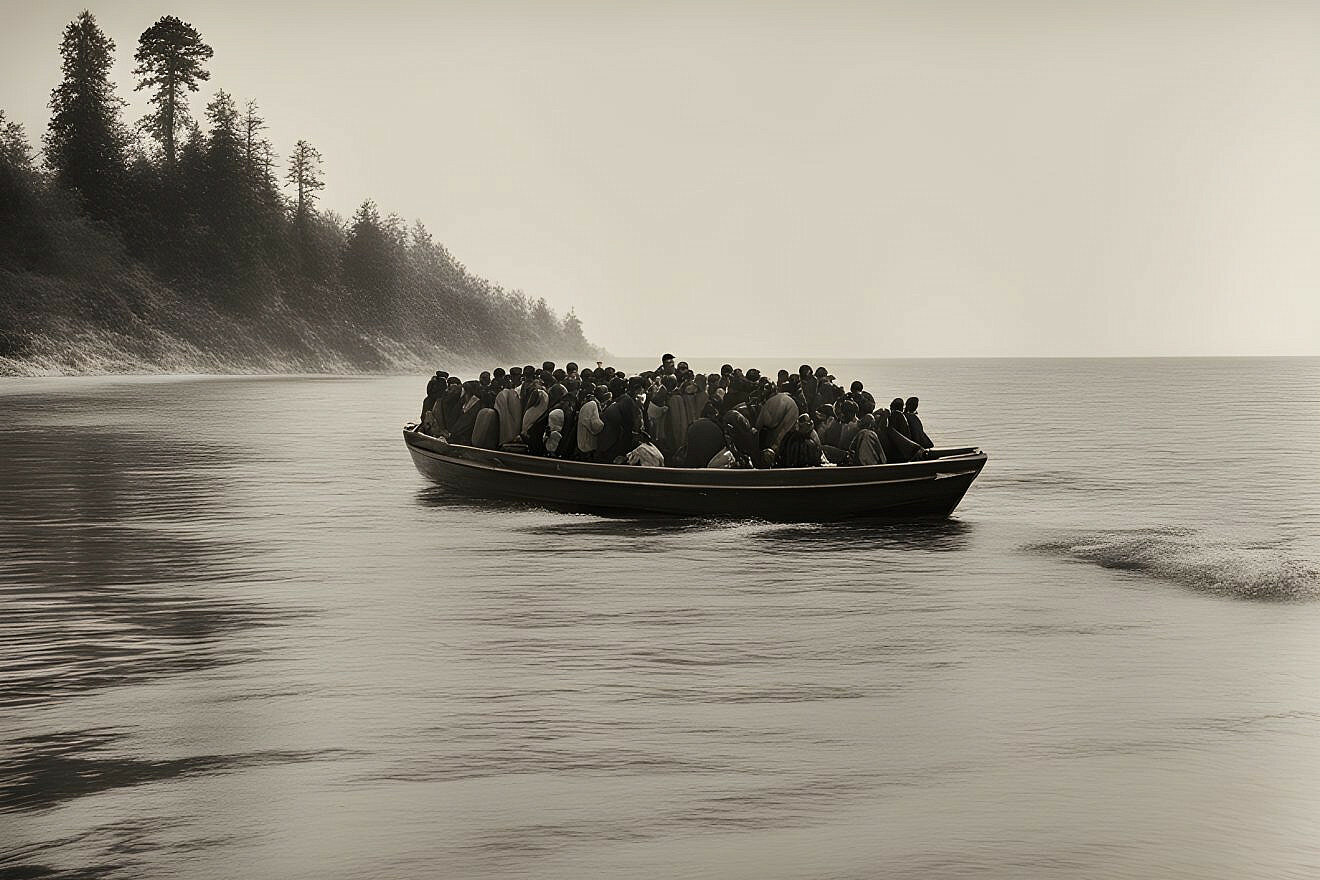There’s a real difference between East, West
Long ago, I was held captive in Kabul as a young bride. When I managed to get out, I understood in my bones that the West and the East are very different places. Other Americans do not understand this.
Although I loved many things about the Muslim world — the awe-inspiring mountains, the ancient bazaars, the ceremonial aspects of dining, rose petals in the pudding, the biblical barefoot nomads tinkling as they walked together with their sheep and camels — I saw that the East was very wild. It was rife with unending blood feuds, vigilante (in)justice, illiteracy, poverty, disease, cruelty and above all hatred.
Hatred of infidels, especially Jews, Christians and Hazaras who are Shiite, not Sunni Muslims. Hatred of women. Hatred of servants. Hatred of daughters-in-law. Hatred of their own political dissidents and free-thinkers. Hatred of Americans. But respect for Nazi Germany and German products.
One cannot blame any of this on imperialism or colonialism. These customs were all indigenous. It is crucial to understand this.
Why? Because this is the neighborhood in which Israel lives. The Jewish state has weathered every storm. We are an eternal people and will always survive. But the cost in blood has been high. The IDF is now fighting brilliantly. The Israelis are miraculously resilient.
But many of us in the Diaspora are traumatized. We are in free fall. How could it come to this? Where can Diaspora Jews run to now? Must we start thinking like this? How can we help Israel to survive such hatred and its many military challenges?
• • •
The situation is now beyond surreal. Swarms of angry radicalized and indoctrinated Arabs, Muslims and American students are attacking Jews and Israel all over the world. The attacks are coordinated, much like the planes of 9/11. They are all well-funded and well-planned, just like Oct. 7.
Israel’s contestant in the Eurovision contest in Sweden was booed during her dress rehearsal. Well, that’s Islamist Malmo for you. There’s a reason it’s known as the rape capital of Europe. Jewish students are being physically and verbally attacked at hundreds of American universities. There are no consequences. Students whose parents have paid good money and have worked hard to graduate will have no graduation ceremonies.
In the early 21st century, I wrote that, for Jews and the West, it was already one minute before midnight. I kept saying so more and more insistently after 9/11 and as all the Muslim intifadas unfolded in Israel and all over Europe. Synagogue bombings, plane hijackings, kidnappings, stabbings, car-rammings, human bombs that blew up Israeli civilians.
But actually, I was late to the party of doomsayers.
I have written about the French novelist Jean Raspail before. Has anyone read his haunting and apocalyptic dystopian novel “The Camp of the Saints?”
In 1973, Raspail predicted the Palestinian-style intifada that now rages in southern and northern Israel, Gaza, Judea and Samaria, and in France, England, Scandinavia, Italy, Holland, Belgium and Austria.
In 1975, Raspail published his novel in America, where it was compared to Camus’s “The Plague” and Swift’s “Gulliver’s Travels.”
• • •
The book imagines a flotilla of millions of immigrants traveling from the Ganges to France. They are starving “wretches, overwhelmed by misery.”
Raspail wrote, “I literally saw them, I saw the major problem they presented, a problem absolutely insoluble by our present moral standards. To let them in would destroy us. To reject them would destroy them.”
An all-powerful, politically correct intelligentsia swiftly joins compassionate French Christians in ecstatically welcoming the mass invasion that annihilates France. The French priests, intellectuals and student activists who want to embrace and assist the implacably angry new arrivals are repaid with death and terror: The immigrants loot everything in sight; they murder for new apartments; France is run into the ground. Raw and relentless, the novel is every bit as brilliant as Orwell’s 1984.
Raspail dared to ask the hard questions: Are we our brothers’ keepers? Must the West share all its resources with a barbarous East, even if it means our own demise? What will the consequences be for the West (specifically for France) if it welcomes profoundly hostile immigrants who do not wish to assimilate and whose own cultural and religious practices sanction violence, illiteracy and gender and religious apartheid?
Raspail was accused of being a racist and a fascist. In 1982, in an epilogue to an edition of his book, Raspail recalled the wrath he incurred: “What I was saying was terrible. I waited patiently to be burnt at the stake.”
• • •
As events unfolded, some European leaders and thinkers began to read his work — secretly, to be sure. Over time, Raspail wrote, “I, the accursed writer, was transformed into a prophetic writer.”
But this prophet’s vision was forgotten — just as Bat Ye’or and Oriana Fallaci’s work has been defamed and forgotten.
While Raspail was initially published by Scribners, a major American publisher, subsequent American editions of his novel were printed by different and smaller presses: Grosset and Dunlop, then the Institute for Western Values, followed by the American Immigration Control Foundation. The 1995 edition was published by the relatively obscure Social Contract Press of Petoskey, Michigan.
Raspail saw what was coming but was powerless to prevent it. He was mocked and scorned — then grudgingly acknowledged. But his challenge has not been heeded. Some have embraced it as science fiction. I suggest that its true genre is that of prophecy and that Raspail’s “vision” has come true in our lifetime.
Can someone buy some copies of this book (now long out of print) and send it to ranking members of the Democratic Party? Please?
Phyllis Chesler is an 83-year-old American writer, psychotherapist, and professor emerita.







